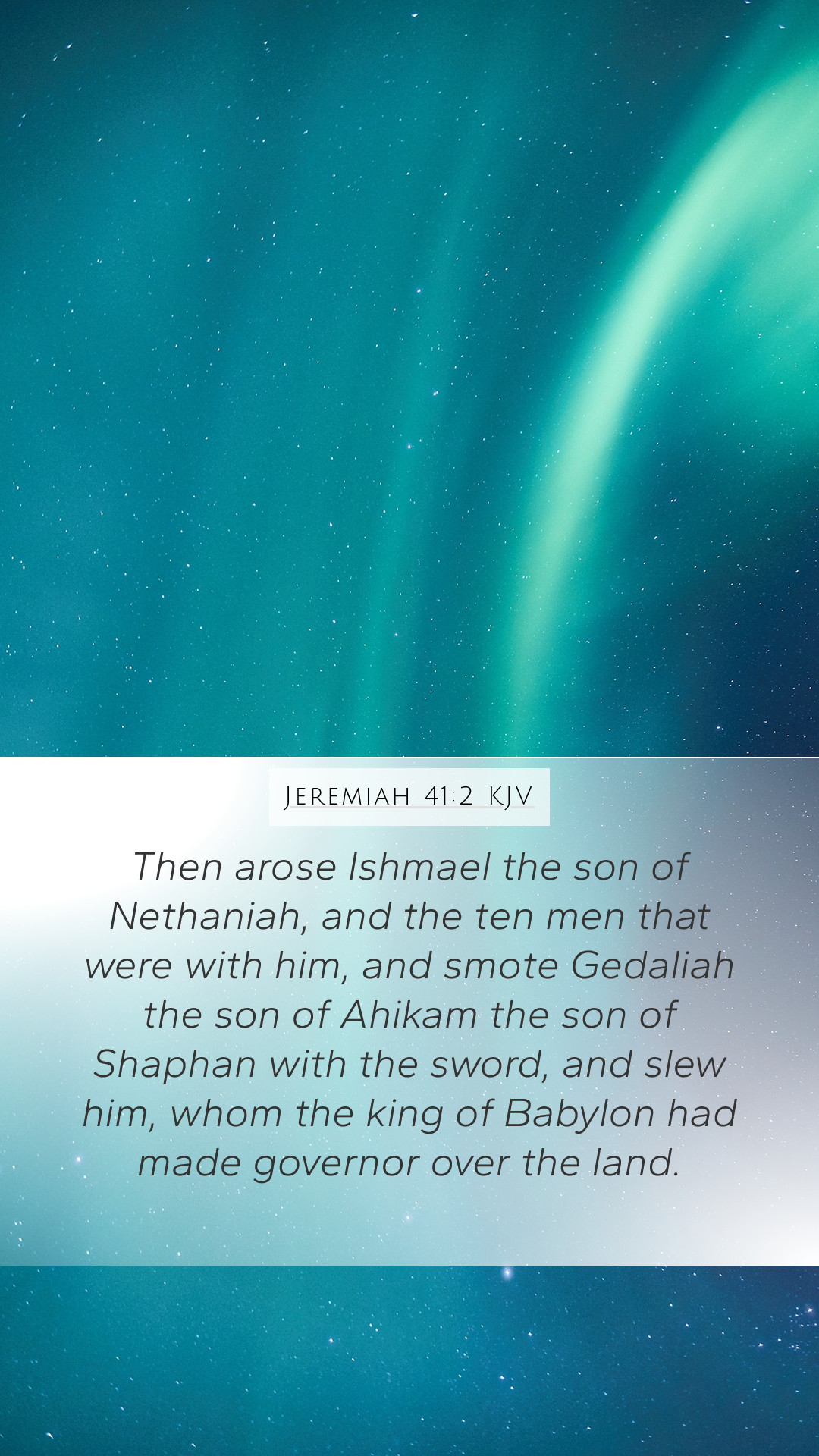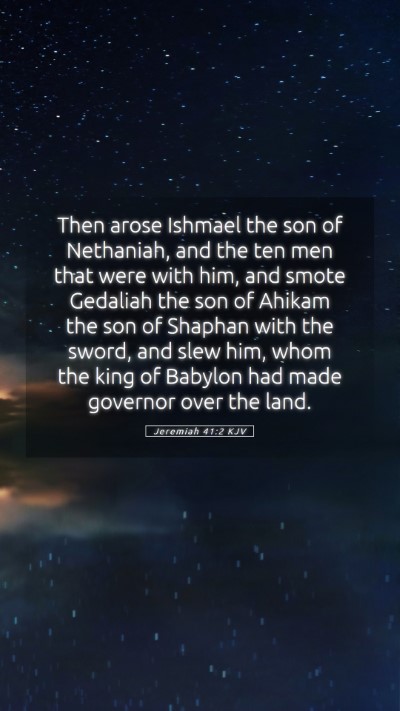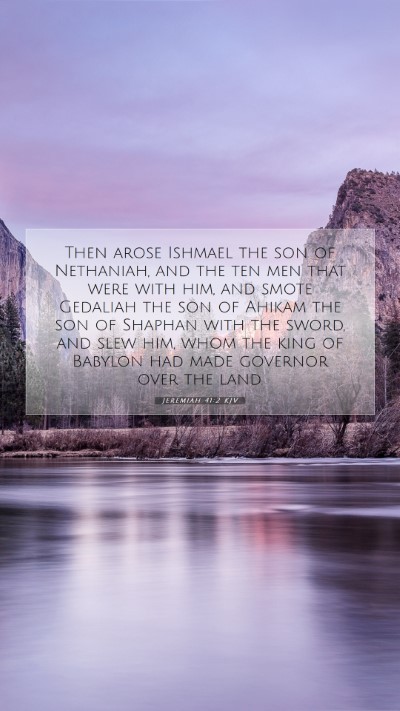Understanding Jeremiah 41:2
Jeremiah 41:2 states: "And Johanan the son of Kareah went out, and all the captains of the forces that were with him; and all the people from the least even to the greatest, and came unto Gedaliah to Mizpah..." This verse is situated in the context of post-exilic Judah, demonstrating the social and political dynamics of the time.
Summary of the Verse
This passage depicts a pivotal moment where Johanan and the leaders of the remaining people approach Gedaliah, who had been appointed governor over the land after the Babylonian exile. The intent was to negotiate and discuss the uncertainties following the destruction of Jerusalem.
Biblical Exegesis
Commentaries from Matthew Henry, Albert Barnes, and Adam Clarke provide a multifaceted understanding of this scripture.
Matthew Henry's Commentary
Henry emphasizes the leadership role of Johanan and the collective action of the people. This illustrates a significant moment of unity among the remnant of Judah.
Albert Barnes' Commentary
Barnes elaborates on Gedaliah's role as a figure of authority and stability in a time of chaos. He interprets this as a movement toward restoring normalcy and governance after the tumultuous events surrounding the fall of Jerusalem.
Adam Clarke's Commentary
Clarke reflects on the historical significance, noting that the meeting was not just a simple visit, but an essential gathering of leaders that represented the people's hope for a revival of their nation in the face of oppression and disarray.
Key Themes and Insights
- Leadership and Unity: The gathering signifies the importance of cohesive leadership during difficult times.
- Restoration: The reference to Gedaliah as a governor symbolizes hope for restoration and the re-establishment of order.
- Desperation and Hope: The context demonstrates the people's desperation after losing their homeland, contrasted with their hope for a future under Gedaliah's leadership.
Cross References
- Jeremiah 40:5: A verse that discusses Gedaliah's appointment and the hope he represents.
- Jeremiah 43:2-3: Shows the continuing struggles of the people and their interactions with leaders.
- 2 Kings 25:22-24: Provides historical context regarding the aftermath of Jerusalem’s fall.
Application of the Verse
In applying the lessons of Jeremiah 41:2, contemporary readers can reflect on the importance of unity during crisis, the need for steadfast leadership, and the constant human desire for restoration and hope.
Conclusion
Jeremiah 41:2 serves as a reminder of the critical moments in biblical history where leadership and collective action formed the foundation for rebuilding a nation. Through these insights, we can appreciate the richer meaning of Bible verses, enhancing our understanding of Scripture and its teachings.


